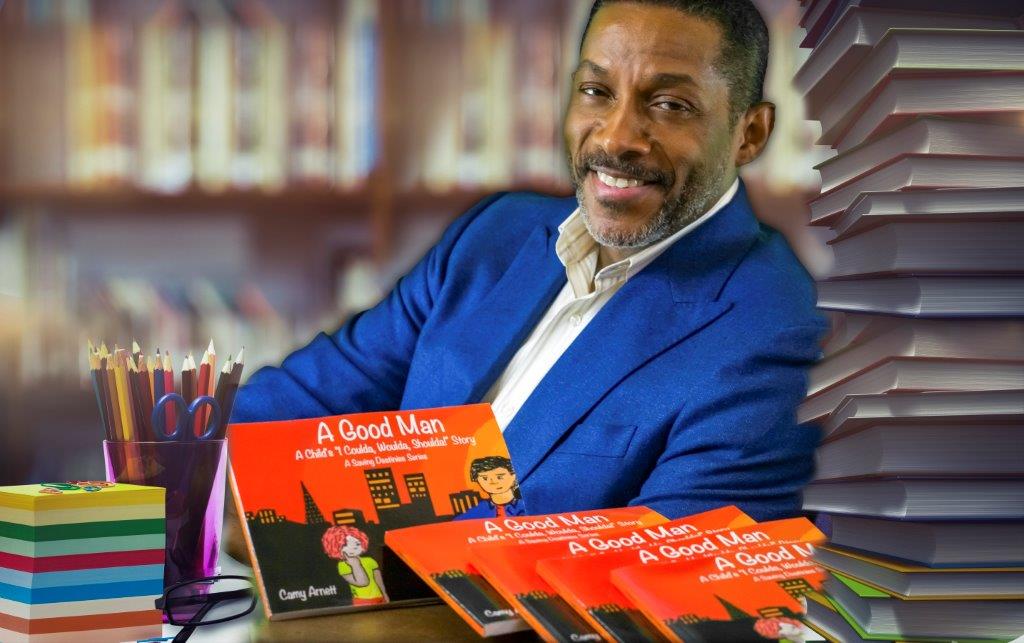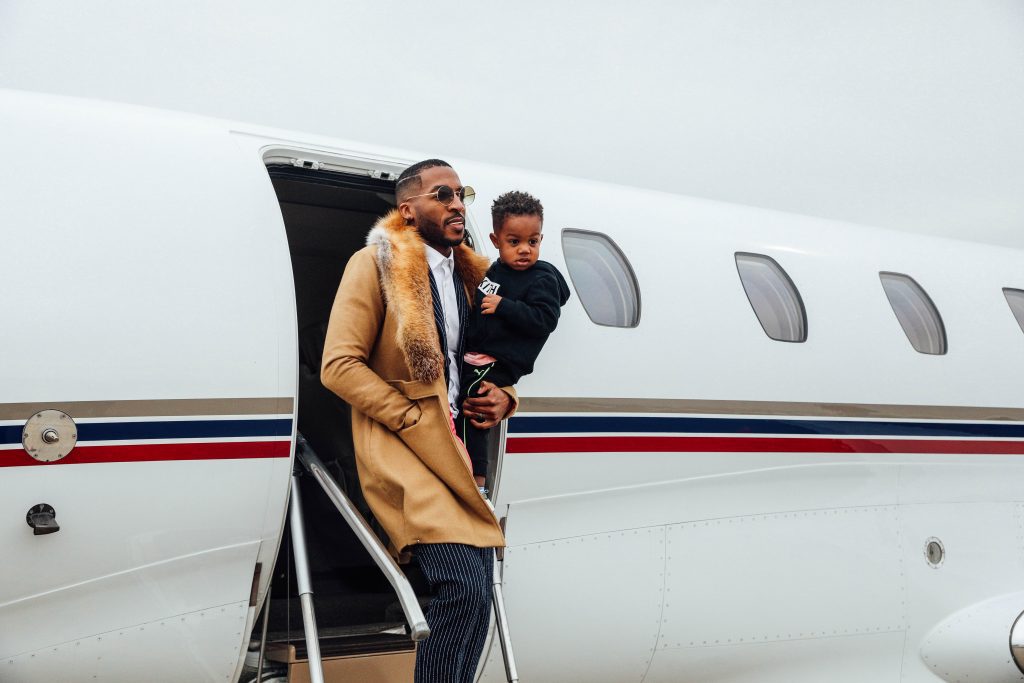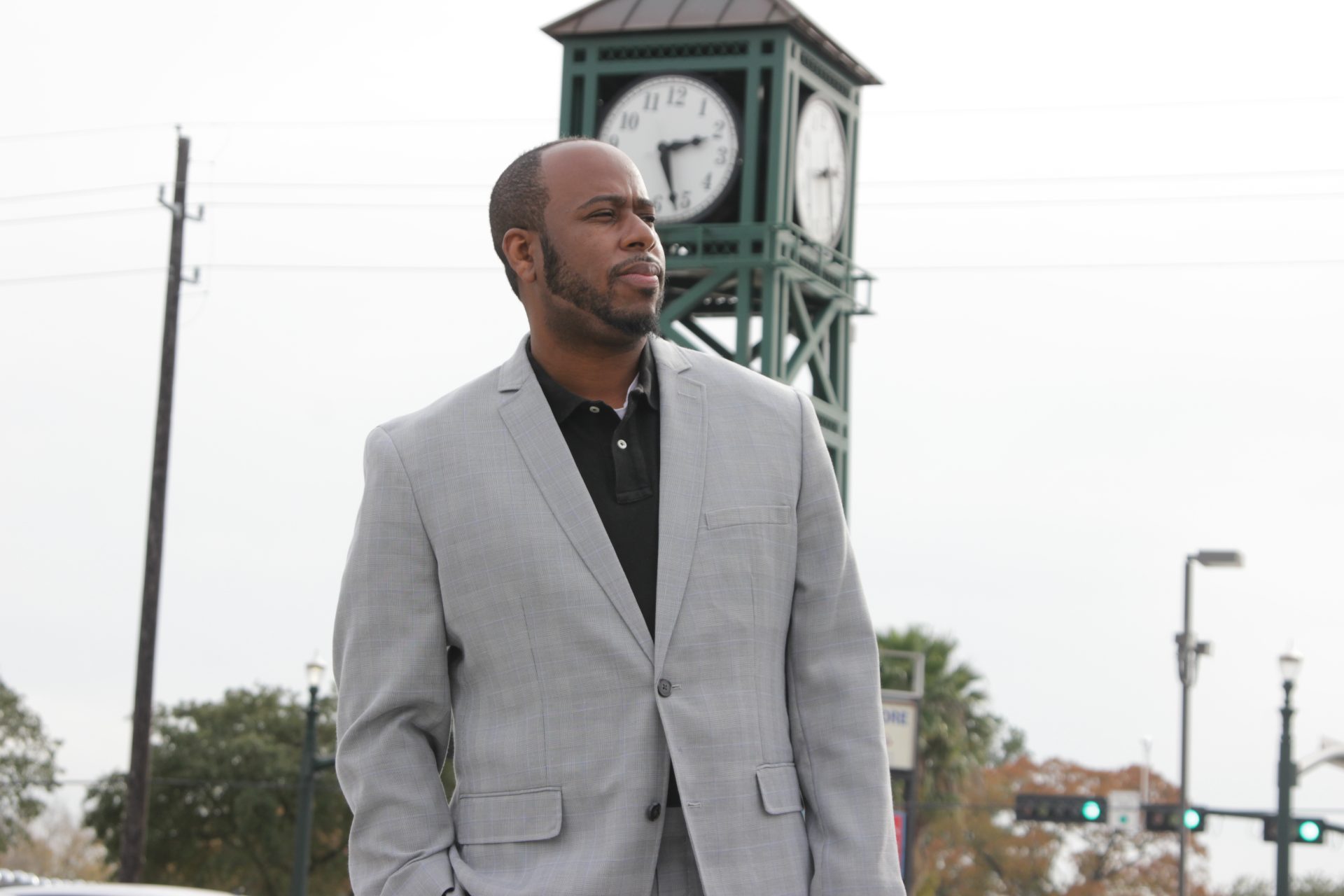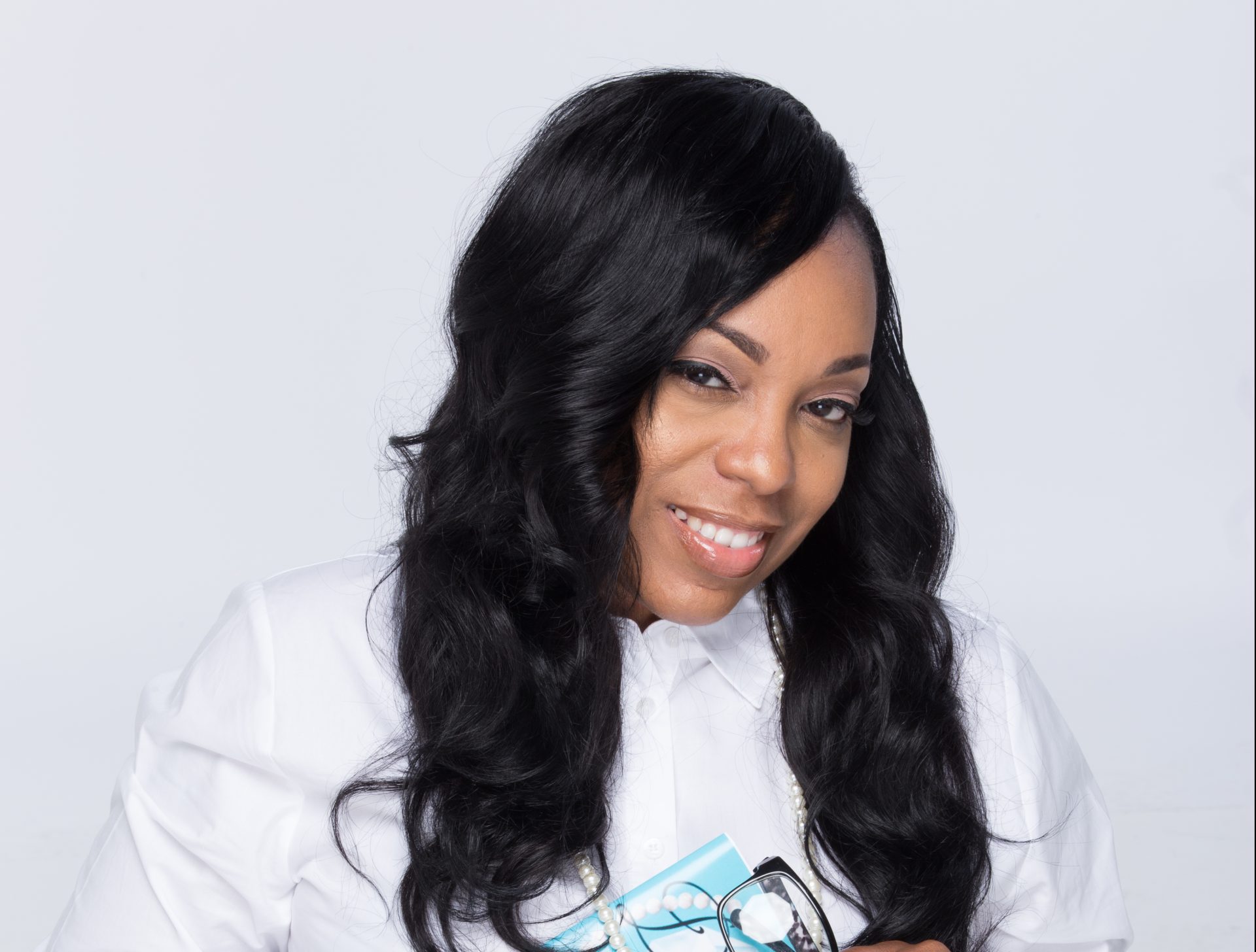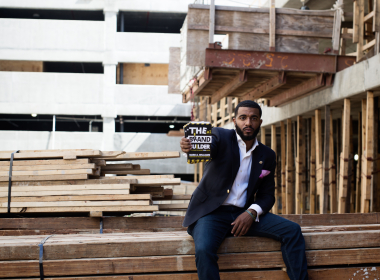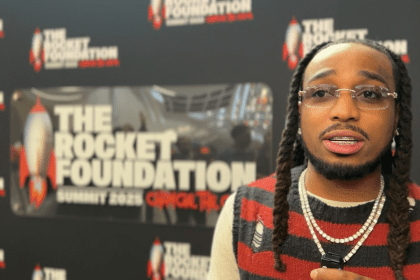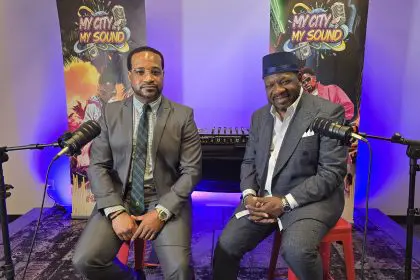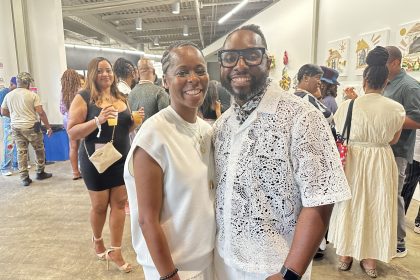
Shola Richards is self-described as the “incurable optimist [who’s] committed to changing the world by helping as many people as possible to live and work more positively.”
In his professional life, he works as a lead training specialist who believes “Leadership is really an art. In my experience, the best leaders aren’t necessarily the ones with the most followers. They are the ones who create the most leaders …, Richards said. “They trust the people they are leading and trust in their ability to make decisions, … recognize employees’ achievements and … not withhold praise.”
Here, the public speaker and author of Making Work Work: The Solution for Bringing Positive Change to Any Work Environment talks about the process of publishing his work, which is slated to hit bookstores worldwide on Sept. 6, 2016.
What inspired you to write your first book?
I’ve spent over a decade facilitating training classes for thousands of professionals, and without question, the No. 1 complaint that I have heard over and over again is that they are not being treated well at work. Whether it’s annoying incivilities like rude or passive-aggressive co-workers, being forced to work to exhaustion for 60-plus hours a week or risk getting fired, or dealing with the devastating effect of workplace bullying, these troubling trends are only getting worse. After waiting for years for someone else to deal with these issues, I finally realized that no one else is coming to the rescue — I need to jump in to deal with this myself. Too many good people are suffering, and I refuse to sit on the sidelines any longer and do nothing.
Do you have a specific writing style?
I’ve been told that I write exactly like I speak, which makes my readers feel like I’m having a conversation with them. That’s my goal, so it always makes me feel good to hear that.
What books have most impacted your life (or life as an author)?
Oh man, that is like choosing between which one of my kids I love the most! I could literally list 50 books that have deeply impacted my life, but here are four of them, listed in no particular order: Awaken the Giant Within by Tony Robbins, One Day My Soul Just Opened Up by Iyanla Vanzant, The Power of Intention by Wayne Dyer, and The War of Art by Steven Pressfield.
What book are you currently reading? Why this author?
I’m currently reading Unlearn: 101 Simple Truths for a Better Life by Humble the Poet. This book is an incredible read, and Humble is one of the wisest people I have had the pleasure of reading in a very long time. I love books about personal development, and this is one of the most unique books that I have ever read on the topic. He just came out with a new book, and I’m going to devour it as soon as I’m done with this one.
If you had to do it all over again, would you change anything about your latest work?
Honestly, I would have started writing it sooner! I had the idea of this book floating around in my head for years, but my self-doubt convinced me that I wasn’t worthy enough to write it. Besides that, I wouldn’t change a thing about my book. I poured every ounce of my heart and soul into it, and every word was authentically written to help others who are struggling at work, just like I once was. If my book positively affects one person, then that is enough for me to know that I did not need to change a thing.
Is there anything you find particularly challenging about writing or coming up with a concept for your book?
Coming up with the concept was easy, because I knew that I wanted to write about workplace relations for most of my professional life. The biggest challenge, as mentioned earlier, was overcoming my self-doubt. Reading a lot of books in my lifetime has been a gift and a curse, and for me, the curse was that I constantly compared myself to other authors as I wrote. It was quite a challenge to put aside the voices in my head that were saying, “you’re not good enough” or “stop wasting your time, no one cares about what you have to say,” but somehow I did, and I became a mentally stronger person in the process.
What was the hardest part of completing this project?
Besides the self-doubt, it was definitely the day-to-day challenge of finding time to write. I work full-time, I’m a husband, I’m a father to two very active little girls, and I’m responsible for maintaining my blog (The Positivity Solution), all of which made finding writing time pretty tough. So, in order to give myself the dedicated writing time that I needed, I decided to wake up at 3am four times a week (sometimes more) to write until it was time to get my girls and myself ready for school and work. That was a process that I repeated until the book was completed. There were times where it was a grind for sure, and there were a few breakdowns along the way—but as crazy as it may sound, there was so much more joy in the writing process than pain. Making progress—no matter how small—on a near-daily basis toward my dream of completing this book, was a constant reason to celebrate.
What advice would you give other writers?
This may sound simple, but don’t edit yourself while you’re writing. I would advise any new writer to push through to complete the first draft as best as you can, and then edit it only when the first draft is done. I cannot even express how much time I wasted in the book writing process by constantly tweaking each paragraph before I would move on to the next paragraph, it was insanity. It took me three months to write the first chapter of my book, and once I stopped editing as I wrote, it only took me six months to write the final 16 chapters. Also, another piece of advice—if you don’t have a blog, start one. It is the best way to build confidence in your writing, get real-time feedback from your readers, and potentially get discovered too.
Describe the process of getting published.
I wrote a book proposal, which included an outline of the chapters in my book, the completed Introduction, the completed first three completed chapters, and why I believed that I was the right person to share this message. Once my literary agent found a publisher who liked my proposal and signed me to a deal, I got to work and started writing. When I finally completed my first draft of my manuscript, I sent it over to my editor, who then gave me edits to work on. After a few weeks going back-and-forth with the edits, the finalized Microsoft Word document was turned into a galley, or Advance Reader Copy of the book. There are no words to express the excitement of holding something that I wrote that actually looks like a book—and I’m not ashamed to say that I cried when I held it for the first time. It has been such a long journey for me, and to see it result in a published book was very overwhelming, to put it mildly.
Everyone’s process for writing is different. Explain yours.
My writing process is very simple. I love listening to music when I write, so I grab my Beats headphones, I turn off the wifi on my laptop to avoid mindlessly messing around on social media, and then I start writing. Some people are able to write Chapter 12 of the book before they write Chapter 1, but I’m a linear type of guy. I have to finish Chapter 1 before I can move onto Chapter 2—it’s just how I’m wired.
What are five of your favorite books and why?
In no particular order:
1. Awaken the Giant Within, by Tony Robbins: It introduced me to the idea that a book could actually inspire me to become a better person. Prior to reading that book, the only books that I read were the ones that were assigned to me in school. After reading that book, I knew that I wanted to become an author who inspired others to be their best too.
2. One Day My Soul Just Opened Up by Iyanla Vanzant: I just went through an absolutely brutal break-up with a girl who I thought that I was going to marry, and this book brought me out of a very dark place. Even though that was close to 20 years ago, I still recommend this book to anyone who is struggling to overcome any form of adversity.
3. The Power of Intention by Wayne Dyer: This book introduced me to the power of our minds and our energy to influence our reality. I know that may sound very “woo-woo” to a lot of people, but the way that he explained these concepts in this book are so practical that once I applied them, they changed me at a visceral level. Outside of my parents, Dr. Dyer’s books are single most important reason why I have dedicated my life to positivity. And out of all of his books, I believe this one is his best.
4. The War of Art by Steven Pressfield: This is by far the book that I have gifted to others the most. If you are dealing with self-doubt around a creative project—it doesn’t matter if it’s writing a book, recording your album, getting on stage to deliver your spoken word poetry, starting a business or sharing your art with the world, this book will inspire you to get it done. When I was struggling to write my book, a friend recommended this book to me, and I believe that I wouldn’t have finished my book without reading it.
5. The Obstacle is the Way by Ryan Holliday: I have always been fascinated with stoic philosophy, and this is the best book I’ve ever read on the topic. It’s informative, easy to read, packed with powerful insights in every single chapter.
Please provide three “good to know” facts about yourself. Be creative.
1. Fun fact: My name used to constantly auto-correct on most iPhones to “Ebola.”
2. Fun fact: Since my passion is helping people who are suffering, my buddies have nicknamed me “Brother Theresa.”
3. I drank gasoline once when I was a kid because I loved the smell of it. Needless to say, I got violently sick afterward, and I don’t love the smell of it anymore.
Tell us about your first job or the inspiration behind your writing.
My first job was working at Burger King, and that was when I realized how mean some customers can be to employees who are trying to help them. I remember having a Whopper thrown at me by a grown man because there weren’t enough pickles on it. As I left work that day, I was completely dejected and wondered to myself if dealing with rude and mean people was going to be a constant part of my future for the rest of my professional life. In a sense, my experiences there were the start of my fascination with how we treat each other at work.
What is the mission you set out to accomplish with your voice in this book?
My mission is to start a movement to end generations of unchecked toxicity, bullying and professional suffering in our society. I am focused on making this happen and to help as many people as I can before my time on this planet is done.
Who are the authors you reread and why?
Wayne Dyer and Steven Pressfield. Whenever I need to feel inspired or feeling unsure of myself, those two never fail to give me what I need in the moment that I need it.
A great book has what?
The ability to positively change someone, and a message that can withstand the test of time.
You develop character and ideas by …
Putting in the work. There is no other way to make it happen.
Where would you travel if you could to write you next book?
The island of Kauai. It is so peaceful there and the positive energy is off the charts.
Reading is a gift. How has it opened up your world?
Reading is just an amazing gift, because we are all able to access the most brilliant minds and life-changing information for less than the cost of a large pizza. It doesn’t matter how you want to improve your life — lose weight, overcome depression, learn how to become a DJ, gain confidence to ask your crush out for a date, improve your memory, or effectively deal with drama at work — there is a book out there that can help you. Reading is the most effective and cost-effective way to become our best selves while we’re here on this Earth.

